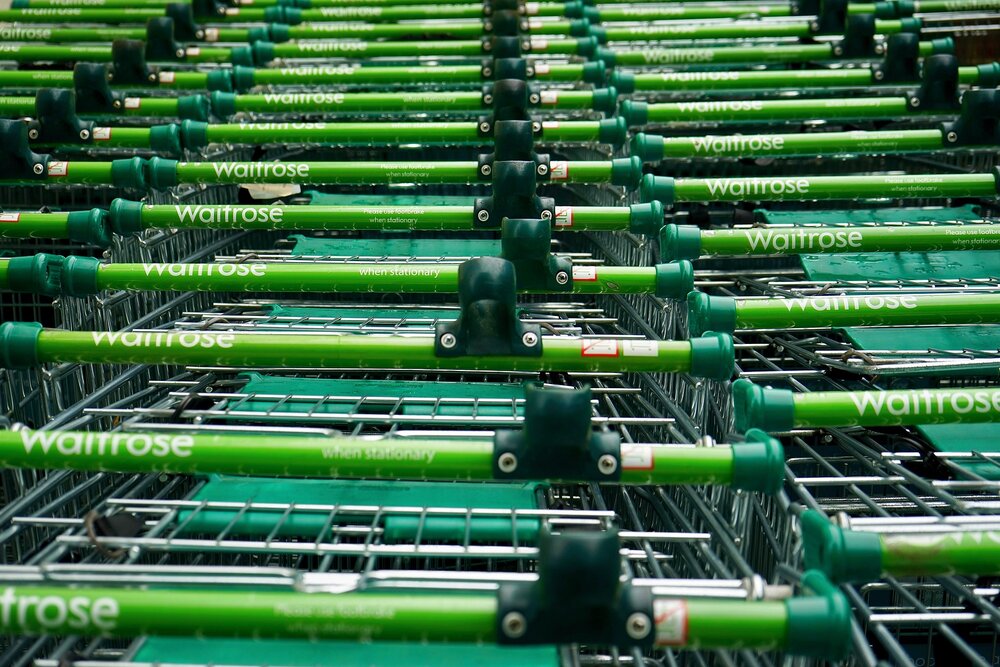By David Saunders | UPDATED: 11:28, 16 April 2020
As the impact of the Coronavirus crisis grows every day, the way in which Britain’s shoppers are buying their produce has shifted dramatically.
The social distancing policies introduced amidst the countrywide lockdown have led to extensive queues at every supermarket as shoppers scramble to keep their distance in the aisles while desperately trying to locate their products, and the “one in, one out” rule drastically reduces the convenience and speed of one’s shop.
When the Coronavirus crisis subsides, the world will not return to business as usual, and the notion of “getting back to normal” is simply not possible.
The impact of Covid-19 has not only forced supermarkets and retailers to deal with an unprecedented set of circumstances, but has also highlighted some of the pre-existing problems with the current set up of retail.
Supply chain issues, ever-changing store layouts and the necessity of standing in queues to pay at unhygienic and slow tills are just some of the issues which the Covid-19 outbreak has brought to light. Contactless payments are now a necessity for the foreseeable future, and the potential dangers of using cash are pushing customers to lay the foundations for a future cashless society.
Now that the effects of the Coronavirus have truly taken hold, the nation’s shopping habits will remain different, and convenience and hygiene will be amongst the chief concerns of customers and retailers alike. But how will the nation’s supermarkets and grocers adapt to help consumers shop in what will be a new age of retail?
According to many industry commentators, retail technology holds the key to helping supermarkets and retailers transition into the new future of retail as designed by Coronavirus. The implementation of end-to-end tech solutions which help supermarkets to streamline and modernise the shopping experience in keeping with the changing retail landscape.
Will Broome, CEO of retail tech company Ubamarket, is working on the frontlines of the battle to help the UK’s retailers adapt and survive the current crisis. Now, he provides insight into how retail technology can transform the current outdated in-store offering to ensure long-term success and customer satisfaction throughout the Coronavirus lockdown and beyond.
“Despite the havoc that is being caused by the outbreak of the Coronavirus, I believe that the crisis is bringing into focus a number of pre-existing problems with the way in which we shop.
The constantly changing store layouts, the outdated queues and checkouts, and the lack of communication between supermarkets and their customers are just some of the issues that COVID-19 has made very clear.
Now, the question facing retailers is not ‘when will things go back to normal’ but rather ‘how can we adapt our offering to make sure we are aligned with the changing trends and new retail landscape?’
The implementation of retail technology holds the key to building the future of retail that supports our new shopping habits whilst also helping retailers to safeguard themselves against future cases of irregular consumer behaviour.
After Coronavirus, the world won’t go back to how was – people will be more hygienic and convenience-conscious, and retailers will be looking for ways to adapt to the shift in consumer behaviour and protect themselves against future shortages.
Retail tech offers an all-encompassing solution; in Ubamarket’s case in the form of a simple app; which can put consumers in control, doing away with the need for time-consuming queues, unhygienic checkouts, and confusion about where products are and whether they are in stock.
In a tech-supported store, customers can simply check ahead of time which products are in stock, be guided to their exact location with an aisle sat-nav, and then simply scan and pay in-app, rather than having to waste time and risk potentially dangerous exposure in queues or tills.
I for one am extremely interested to see how the retail landscape in the UK will emerge from the Coronavirus crisis, but if one thing is certain, it is the capability of retail technology to help us build the future of retail that we would like to see.”





